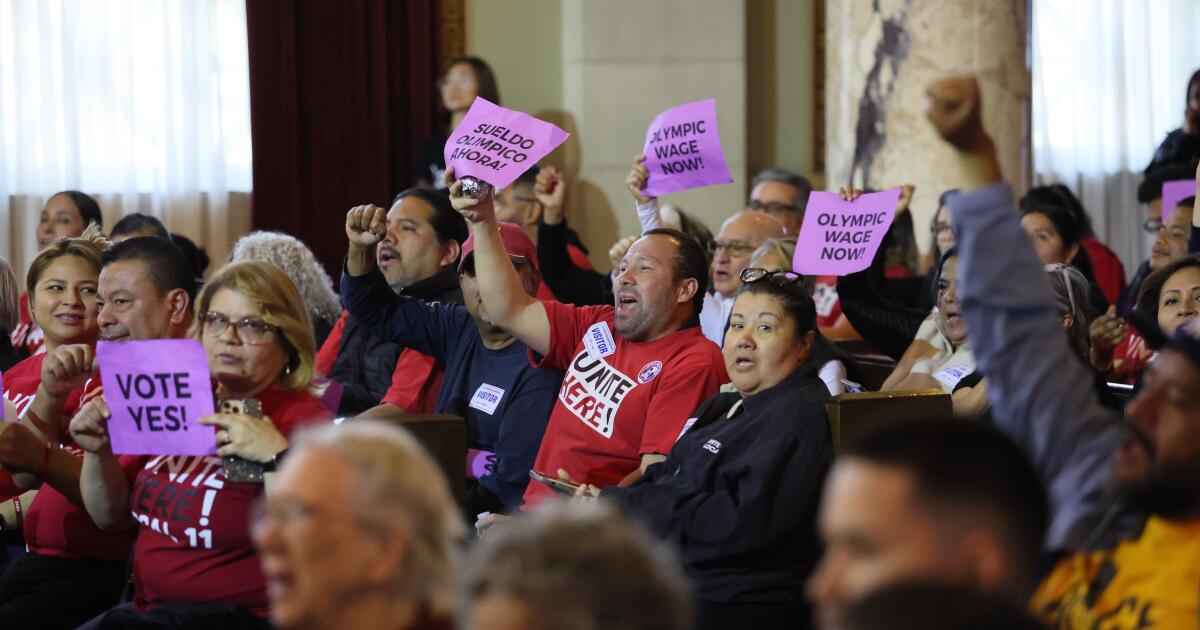The Los Angeles City Council voted Wednesday to approve a sweeping package of minimum wage increases for workers in the tourism industry, despite objections from business leaders who warned that the region is already facing a slowdown in international travel.
The proposal, billed by labor leaders as the highest minimum wage in the country, would require hotels with more than 60 rooms, as well as companies doing business at Los Angeles International Airport, to pay their workers $30 per hour by 2028.
Jessica Durrum, a policy director with the Los Angeles Alliance for a New Economy, a pro-union advocacy group, said business leaders also issued dire warnings about the economy when previous wage increases were approved — only to be proved wrong. Durrum, who is in charge of her group’s Tourism Workers Rising campaign, told the council that a higher wage would only benefit the region.



That works out to an annual salary of about $62,500 for a full-time employee and my intuition is that the marginal value of the lowest-paid hotel employees to their employers is a lot less than that, but the nice thing about this being a local law is that LA can experiment on itself and the rest of the country can watch and learn. If this works well, other cities can do the same thing and if this doesn’t then the harm is relatively limited.
(I noticed that the law only applies to hotels with over sixty rooms. I already stay exclusively in Airbnbs when I travel because that’s cheaper. Is LA also one of those cities making it difficult to run an Airbnb or is this going to make large hotels even less competitive in that regard?)
AirBnB and such is raising the price of housing.
I would HOPE they’re making it difficult to run an AirBNB, fucking plague on the housing market, and they support their Nazi best friend Musk
It makes sense to increase taxes or something if a city has more tourism than is desired and wants to reduce it — some cities in Europe have imposed various forms of taxes on tourists recently, when they’ve had more tourism than the locals are willing to put up with. Makes sense then, since it’s a finite resource being consumed.
I kind of doubt that Los Angeles is in that position, but I dunno what the politics are behind that, and I guess it could be the case.
In Europe’s case, my guess is that one could restructure the cities for more tourism throughout — Orlando, Florida, does more people a year than even the much-more-populous Paris, which is the top destination in Europe.
https://www.visitorlando.org/media/press-releases/post/orlando-welcomed-753-million-visitors-in-2024/
https://roadgenius.com/statistics/tourism/france/paris/
But Orlando was also designed around being a tourist destination, and a lot of the cities in Europe upset about tourism load weren’t and I’d guess don’t want to redesign around it.
EDIT: I’d also add that Los Angeles County has been shrinking in population for a while, so I’d be hesitant to impose more costs in their specific case. Let me go find a graph.
kagis
https://www.census.gov/quickfacts/fact/table/losangelescountycalifornia/PST120224#PST120224
Yeah, lower than it was in 2010, even.